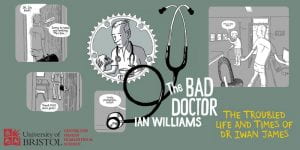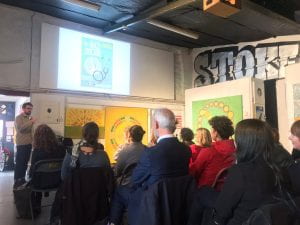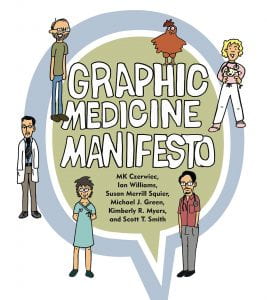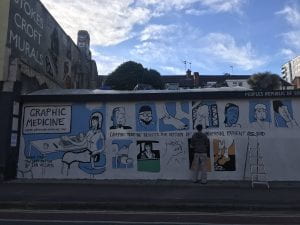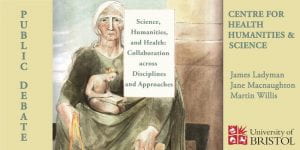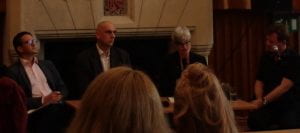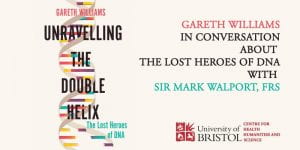Ian Williams is a comics artist, doctor and writer, now living in Brighton.
The website he began in 2007, GraphicMedicine.org, gave a name to what would become a transatlantic, and perhaps global movement, Graphic Medicine. It remains the best place from which to start exploring that world.
His own contributions — creative, academic, and organisational — to the movement have been great. Some of his graphic novels, strips, academic chapters, edited books, and conferences are listed below.
His most recent publication — Jan 2019 — is The Lady Doctor. (New York Times: ‘offers the engrossing perspective of a hard-working and fallible physician. The Lady Doctor… illuminates something profound.’ The Lancet: ‘It’s very funny and also often very sad.’ Herald Scotland: ‘It’s snorting-tea-out-your-nose-while-you’re-reading-it funny.’)
In this talk he introduced Graphic Medicine in the round, and talked about the roles it could play in the lives of doctors, nursing staff, carers and patients (or patients, carers, nursing staff and doctors). Plenty of time was left for a Q&A session at the end, and attendees were encouraged to submit questions by email before the event.
Ian is also responsible for creating a new Bristol mural in the Stokes Croft area of the city, which is providing an accessible and inclusive way of representing and communicating issues surrounding healthcare. The wall art was commissioned by the Centre for Health, Humanities and Science at the University of Bristol, with the support of the Elizabeth Blackwell Institute. For full details of this fantastic initiative click here.
Ian Williams can be found on twitter as @TheBadDr and @GraphicMedicine.
